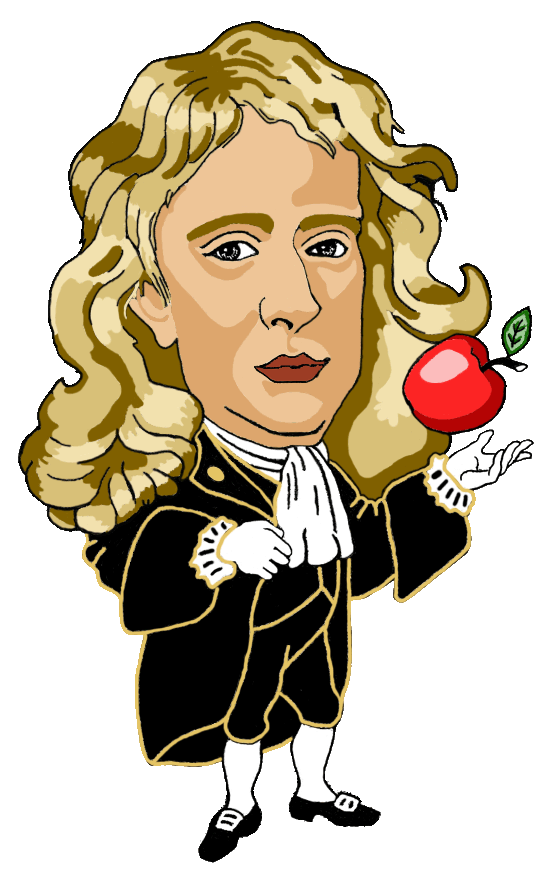

Issac Newton (4 Jan 1643- 31 March 1727)
Name: Issac Newton
Birth place: Woolsthorpe, England
Parents: Issac Newton (father), Hannah Ayscough Newton (mother)
Occupation: Philosopher, Astronomer, Physicist, Scientist, Mathematician
Isaac Newton was an established physicist and mathematician and is credited as one of the great minds of the 17th century Scientific Revolution. Newton developed the principles of modern physics. In 1687, he published his most acclaimed work, Philosophiae Naturalis Principia Mathematica (Mathematical Principles of Natural Philosophy), which has been called the single most influential book on physics.
At age 12, Newton had been enrolled at the King's School in Grantham, a town in Lincolnshire, where he lodged with a local apothecary and was introduced to the fascinating world of chemistry. His mother pulled him out of school, for her plan was to make him a farmer and have him tend the farm. Newton failed miserably, as he found farming monotonous.
He soon was sent back to King's School to finish his basic education. His uncle, a graduate of the University of Cambridge's Trinity College, persuaded Newton's mother to have him enter the university. Newton enrolled in a program similar to a work-study in 1661 and subsequently waited on tables and took care of wealthier students' rooms.
During his first three years at Cambridge, Newton was taught the standard curriculum but was fascinated with the more advanced science. All his spare time was spent reading from modern philosophers. Though Newton graduated with no honors or distinctions, his efforts won him the title of scholar and four years of financial support for future education. Unfortunately, in 1665, the Great Plague forced the university to close. Newton returned home to pursue his private study. It was during this 18-month hiatus that he conceived the method of infinitesimal calculus, set foundations for his theory of light and color and gained significant insight into the laws of planetary motion—insights that eventually led to the publication of his Principia in 1687. Legend has it that, at this time, Newton experienced his famous inspiration of gravity with the falling apple.
In 1687, after 18 months of intense and effectively nonstop work, Newton published Philosophiae Naturalis Principia Mathematica (Mathematical Principles of Natural Philosophy). Said to be the single most influential book on physics and possibly all of science, it is most often known as Principia and contains information on nearly all of the essential concepts of physics, except energy.
The work offers an exact quantitative description of bodies in motion in three basic laws:
1) A stationary body will stay stationary unless an external force is applied to it
2) Force is equal to mass times acceleration, and a change in motion is proportional to the force applied
3) For every action, there is an equal and opposite reaction.
These three laws helped explain not only elliptical planetary orbits but nearly every other motion in the universe: how the planets are kept in orbit by the pull of the sun’s gravity; how the moon revolves around Earth and the moons of Jupiter revolve around it; and how comets revolve in elliptical orbits around the sun.
Adapted from http://www.biography.com/people/isaac-newton-9422656

